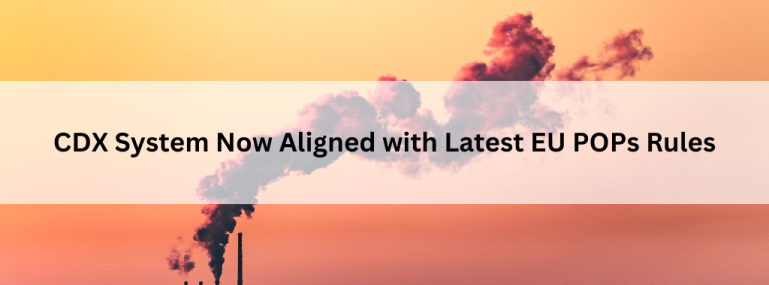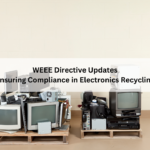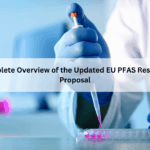In August 2025, Europe rolled out major updates to its regulations on Persistent Organic Pollutants (POPs)—substances known for their long-term risks to human health and the environment. To support organizations in meeting these requirements, the CDX system has been upgraded to align with the latest legal amendments, including Regulation (EU) 2019/1021 and two critical delegated regulations covering UV-328 and PFOA (Perfluorooctanoic acid).
New Limits for UV-328 (Regulation 2025/843)
What changed?
UV-328, commonly used in plastics and coatings, is now subject to progressively stricter unintentional trace contaminant (UTC) limits in the EU:
- From Aug 4, 2025: 100 mg/kg (0.01%)
- From Aug 4, 2027: 10 mg/kg (0.001%)
- From Aug 4, 2029: 1 mg/kg (0.0001%)
Key point:
CDX tracks these phased deadlines, helping companies review products, validate material data, and update declarations in time.
New Rules for PFOA (Regulation 2025/1399)
What changed?
PFOA, widely associated with firefighting foams, faces a tightened phase-out schedule and stricter thresholds:
- Existing foams: Permitted until December 3, 2025
- Until Aug 3, 2028:
- 1 mg/kg for PFOA
- 10 mg/kg for related compounds
- New foams: Replacement foams must contain no more than 10 mg/kg of PFOA in total
Key point:
Once existing foams are replaced and cleaning is completed, the new stricter limits apply. CDX supports accurate reporting and compliance under these updated rules.
The latest updates ensure that CDX users can seamlessly manage, and report restricted substances in full compliance with evolving EU POPs requirements. With regulations on UV-328 and PFOA now in force, organizations must take a proactive approach to safeguard compliance, reduce risks, and maintain global market access.
At ComplianceXL, we help companies navigate these regulatory shifts by offering end-to-end compliance solutions ensuring your reporting is accurate, timely, and aligned with the latest EU standards. By leveraging CDX alongside expert guidance, businesses can stay ahead of complex substance restrictions while reinforcing their commitment to sustainability and regulatory excellence.





